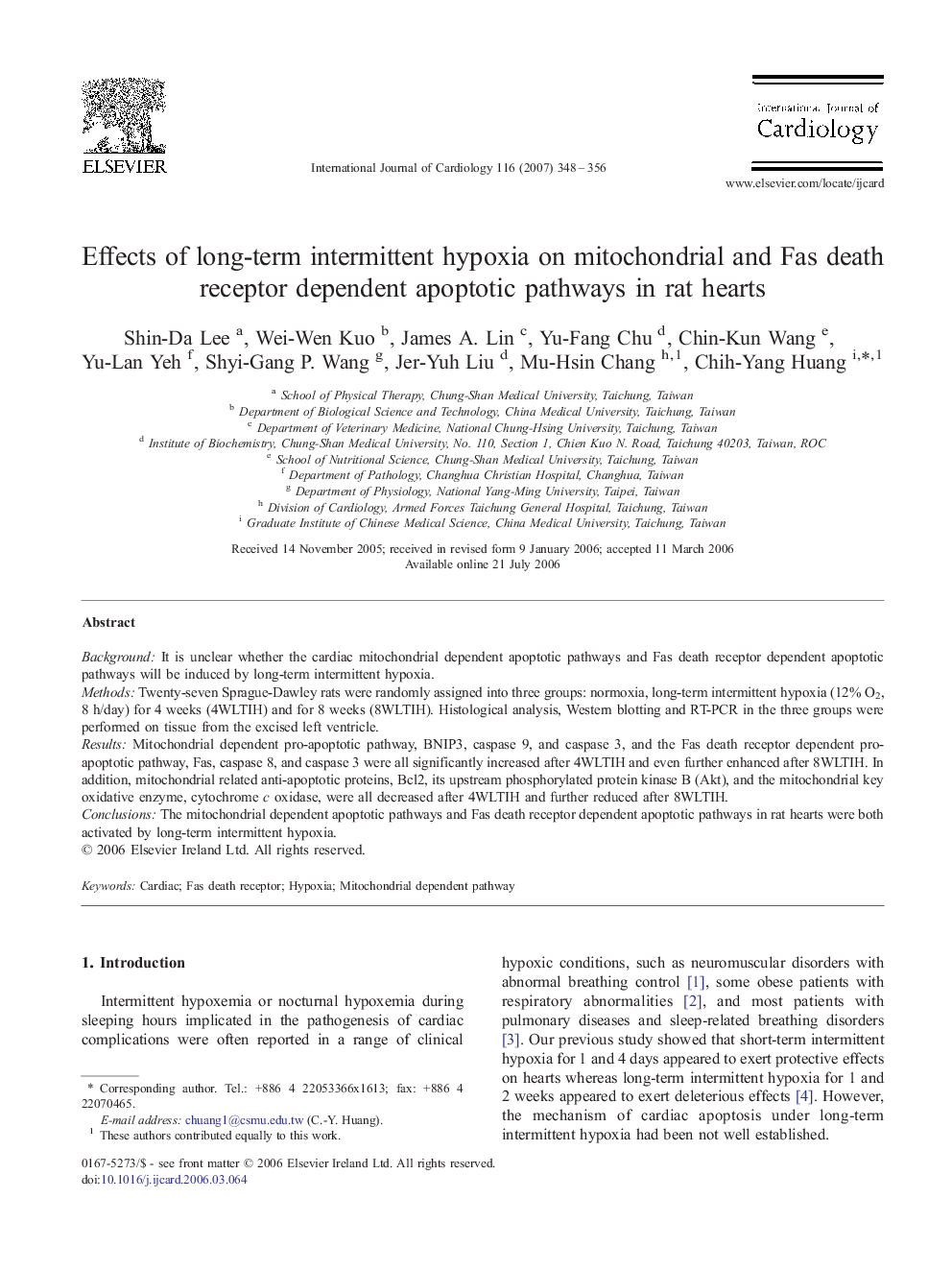| Article ID | Journal | Published Year | Pages | File Type |
|---|---|---|---|---|
| 2936116 | International Journal of Cardiology | 2007 | 9 Pages |
BackgroundIt is unclear whether the cardiac mitochondrial dependent apoptotic pathways and Fas death receptor dependent apoptotic pathways will be induced by long-term intermittent hypoxia.MethodsTwenty-seven Sprague-Dawley rats were randomly assigned into three groups: normoxia, long-term intermittent hypoxia (12% O2, 8 h/day) for 4 weeks (4WLTIH) and for 8 weeks (8WLTIH). Histological analysis, Western blotting and RT-PCR in the three groups were performed on tissue from the excised left ventricle.ResultsMitochondrial dependent pro-apoptotic pathway, BNIP3, caspase 9, and caspase 3, and the Fas death receptor dependent pro-apoptotic pathway, Fas, caspase 8, and caspase 3 were all significantly increased after 4WLTIH and even further enhanced after 8WLTIH. In addition, mitochondrial related anti-apoptotic proteins, Bcl2, its upstream phosphorylated protein kinase B (Akt), and the mitochondrial key oxidative enzyme, cytochrome c oxidase, were all decreased after 4WLTIH and further reduced after 8WLTIH.ConclusionsThe mitochondrial dependent apoptotic pathways and Fas death receptor dependent apoptotic pathways in rat hearts were both activated by long-term intermittent hypoxia.
